California avocado growers are sounding the alarm over a potential infiltration of crop pests from across the border after the Biden administration caved to Mexican cartel threats and ended a Clinton-era food inspection process that now threatens U.S. farmers.
“We understand the importance of free trade,” Ken Melban, the vice president of industry affairs and operations at the California Avocado Commission, told Fox Digital in a Tuesday Zoom interview. “Eight-five to 90% of the total U.S. demand for avocados is supplied by Mexico. However, that free trade should not increase risk on our California growers.”
“Our growers are working hard to maintain a business, to drive their economic engine, to provide for their families, to support the economies around them,” he said. “And they shouldn’t have to face a pest, no fault of their own, just because our government in the past was afraid to stand up to the cartel.”
Melban was reacting to a Biden administration decision in September 2024 to end a U.S. Department of Agriculture program called the Animal and Plant Health Inspection Service (APHIS) specifically in the context of inspecting farms in Mexico to ensure that avocados exported to the U.S. did not also include pests that could disrupt U.S. agriculture. The policy change came after criminals in Mexico reportedly assaulted and threatened the inspectors in recent years.
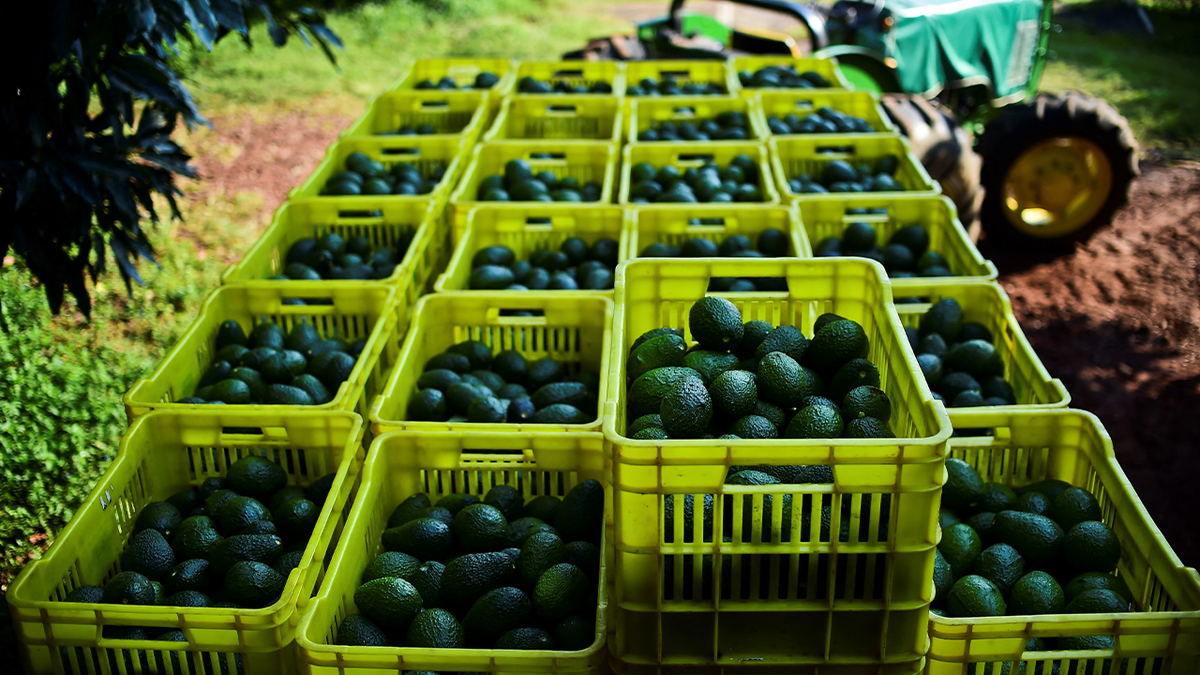
Fruit boxes with avocados are pictured during harvest at an orchard in the municipality of Uruapan, Michoacan State, Mexico. (Getty Images)
Instead, Mexico was charged with ensuring avocados sent across the border were free of harmful pests, such as seed and stem weevils and seed moths. Weevils are small insects that typically have long snouts, and are notorious for damaging or destroying crops.
The avocado industry is a multibillion business in Mexico, but it is often rocked by crime and exploitation of farmers as cartels work to control the supply chain to help finance their operations, and often exploits farmers through rackets that level fees on avocado growers in exchange for protection from violence, various studies and reports on crime affecting the Mexican lime and avocado industry show.
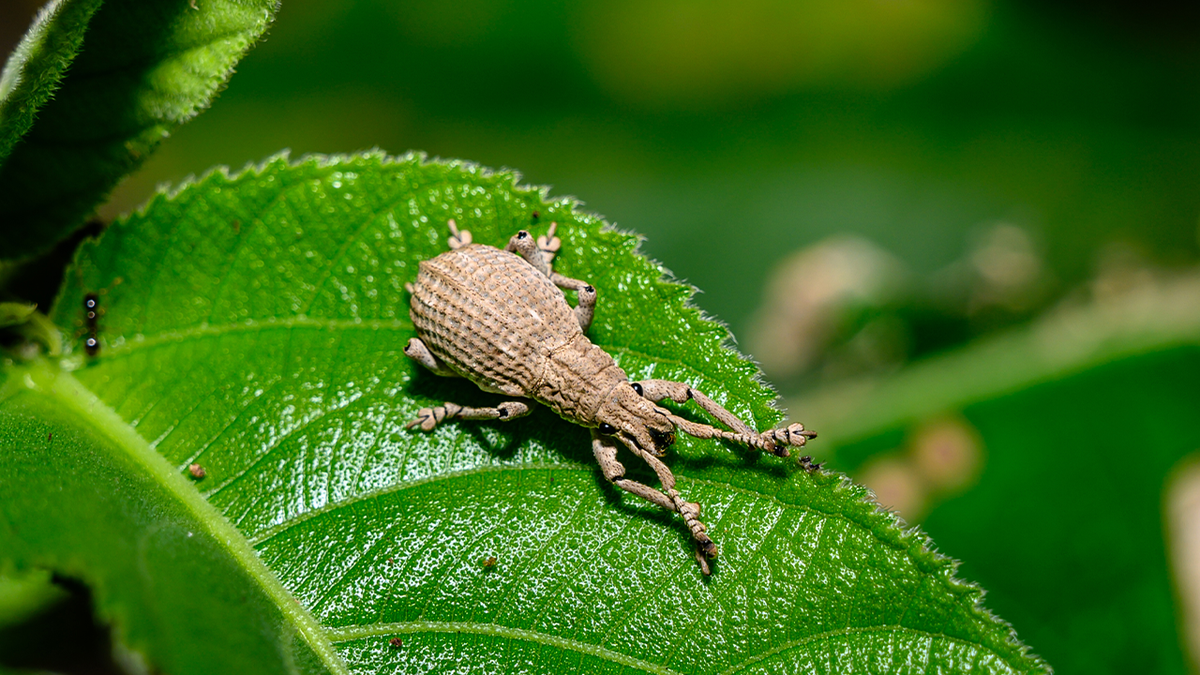
Weevils are beetles belonging to the superfamily Curculionoidea, known for their elongated snouts. (Soumyabrata Roy/NurPhoto via Getty Images)
Mexico’s Agriculture Department confirmed the Animal and Plant Health Inspection Service program ended in a statement in September 2024, claiming “with this agreement, the U.S. health safety agency is recognizing the commitment of Mexican growers, who in more than 27 years have not had any sanitary problems in exports,” the Associated Press reported at the time.
US HALTS INSPECTIONS OF POPULAR FRUITS FROM MEXICO OVER SECURITY CONCERNS: USDA
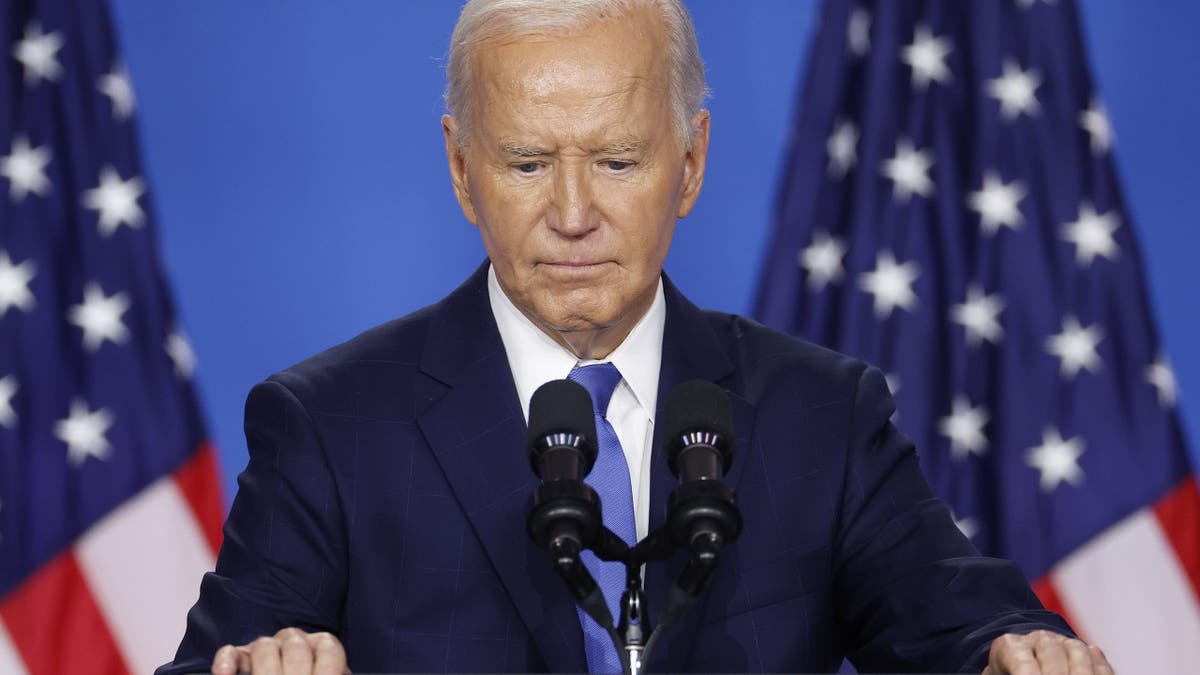
President Biden’s administration is under fire from the avocado industry. (Getty Images)
Former President Bill Clinton established the inspection program to better bolster U.S. farming communities, with the California Avocado Commission and Department of Agriculture reaching an agreement with Mexico in 1997 to allow for Mexican avocados to be exported to the U.S. under the condition that the fruit be inspected. All expenses related to the program’s inspections of orchards and packing houses were footed by Mexico, not U.S. taxpayers, according to the commission.
The Biden administration also paused the program in 2022 after an inspector in Mexico’s western state of Michoacan received a threat “against him and his family,” the USDA said at the time. Two other USDA employees were also reportedly assaulted and temporarily held by suspects in the same Mexican state in June 2024, leading to another pause before Mexico ultimately was charged with conducting inspections in September 2024.
“We know that without the U.S. government present, the likelihood for corruption exists,” Melban said of the lack of USDA inspector currently in Mexico. “You can’t just show up one day and pretend that your grove has been certified and that you’re taking all the measures necessary to keep pests out and free. We also know that there has been fruit brought in from other non-certified groves in the past, and that’s part of the problem. That’s where we need the USDA to have boots on the ground and make sure that the inspections and the integrity of the inspections are maintained.”
“This entire inspection program is funded by Mexico,” he added. “It’s part of their privilege to come into our U.S. market.”
Michoacan has long been a hotbed for cartel activity, with the State Department in September issuing a “Do Not Travel” advisory for the Mexican state due to its high threats of kidnapping and crime, according to the travel advisory. Michoacan and Jalisco are the only two Mexican states authorized to export avocados to the U.S.
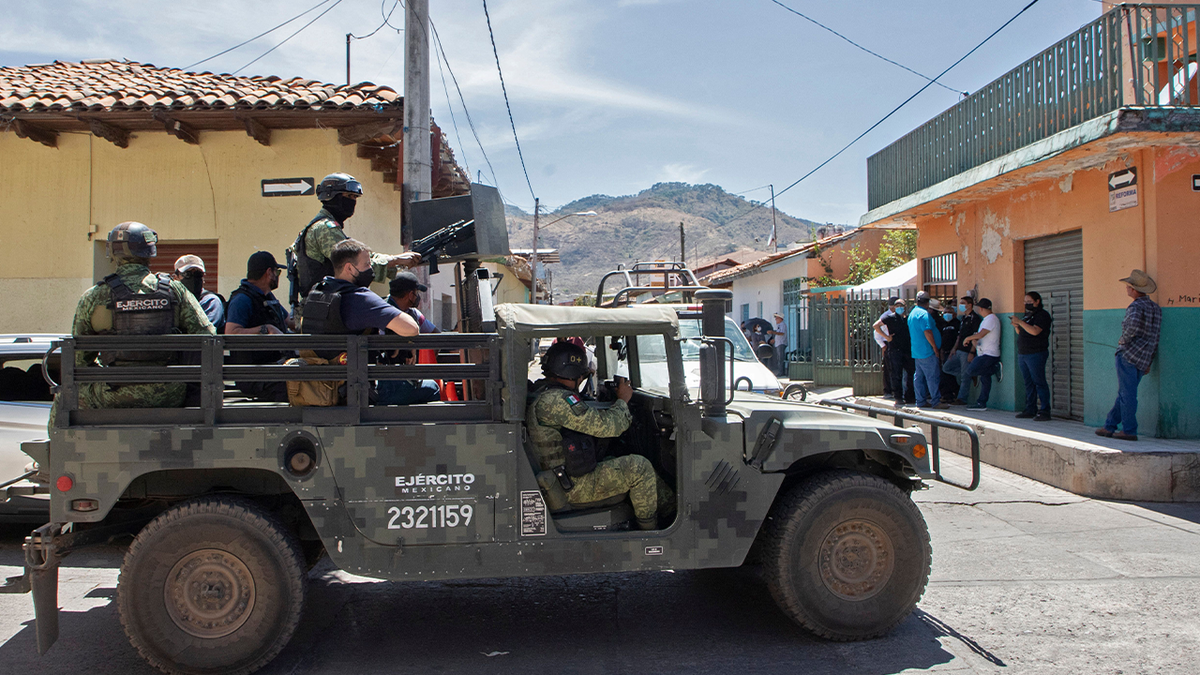
Soldiers patrol the streets of Aguililla, Michoacan state, Mexico, on March 11, 2022 after violent cartel activity. (Enrique Castro/AFP via Getty Images)
Some residents and farmers of the Michoacan state have also formed various self-defense groups in the past decade to help protect against cartel violence.
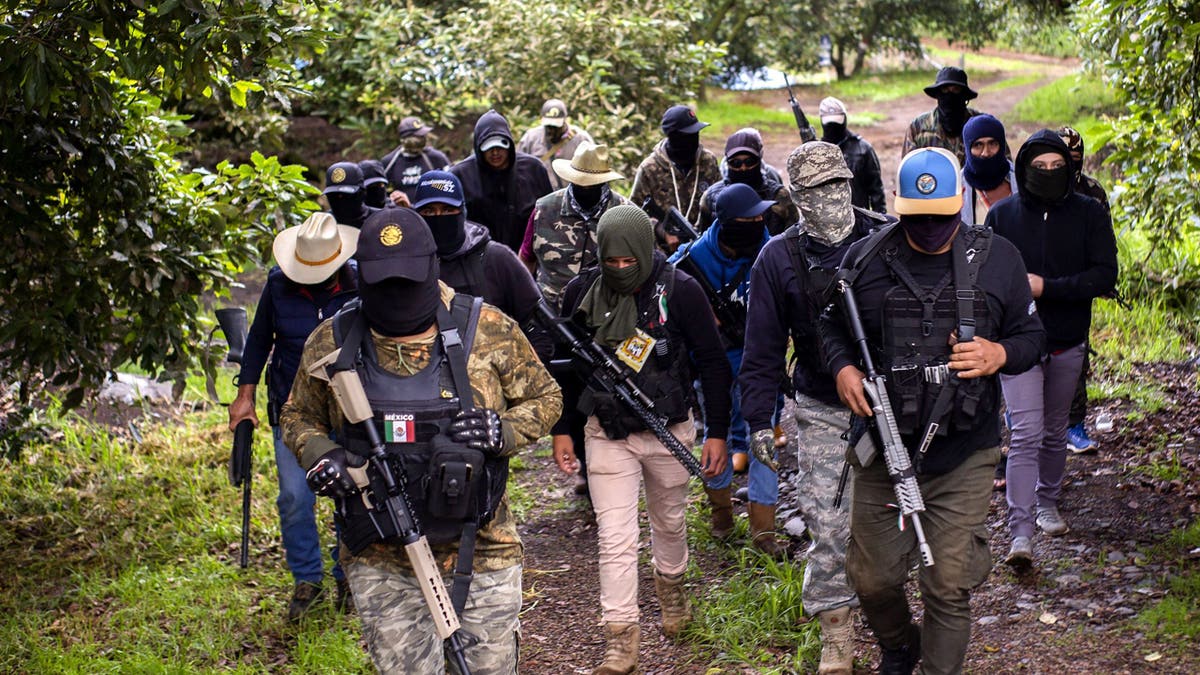
Members of the self-defense group Pueblos Unidos carry out guard duties in protection of avocado plantations, whipped by drug cartels that dominate the area, in Ario de Rosales, state of Michoacan, Mexico, on July 8, 2021. (Getty Images)
“We’ve all heard the stories and see the reporting that the cartel is very prevalent in Michoacan, which is a big growing area and the first state that was ever allowed access to the U.S. And so it only stands to reason that they’re going to be involved at some level. And in many instances, they are actually exploiting our pure growers in Mexico too. We’re just looking for the safety of the entire program, so the integrity can be maintained to protect our growers’ interests here in the U.S.,” Melban explained.
The USDA told Fox Digital on Wednesday that the APHIS program continues to inspect fruit entering the U.S. at the border and is comitted to “mitigating plant health risk in a way that does not compromise the safety and security of our employees or the phytosanitary security of the United States.”
“USDA’s Animal and Plant Health Inspection Service (APHIS) understands the vital importance of the avocado industry to the State of California and recognizes the concerns raised by residents. APHIS staff continue to fulfill their inspection responsibilities regarding fruit entering the United States from Mexico. Nearly 30 years of experience administering this program has proved the effectiveness of the avocado program’s system of overlapping safeguards to prevent the entry of invasive pests,” a spokesperson said.
“Staffing levels and budget levels for the inspection program remain the same, and our officials continue to conduct inspections in the packing houses, and provide audit oversight of orchard inspections conducted by Mexican Plant Health Authorities. APHIS remains committed to mitigating plant health risk in a way that does not compromise the safety and security of our employees or the phytosanitary security of the United States,” the spox continued.
APHIS is slated to continue working with and speaking to U.S. avocado growers, according to the spokesperson, and will keep them “apprised of any future changes to the Mexico program.”
“APHIS recognizes that, given the dynamic nature of the avocado industry—including fluctuating high and low seasons in Mexico and California—time is of the essence with many of these decisions. We will work to ensure that U.S. producers continue to safely grow avocados, packinghouses continue to ship healthy fruit from Mexico, and American consumers continue to enjoy this important commodity,” the spokesperson said.
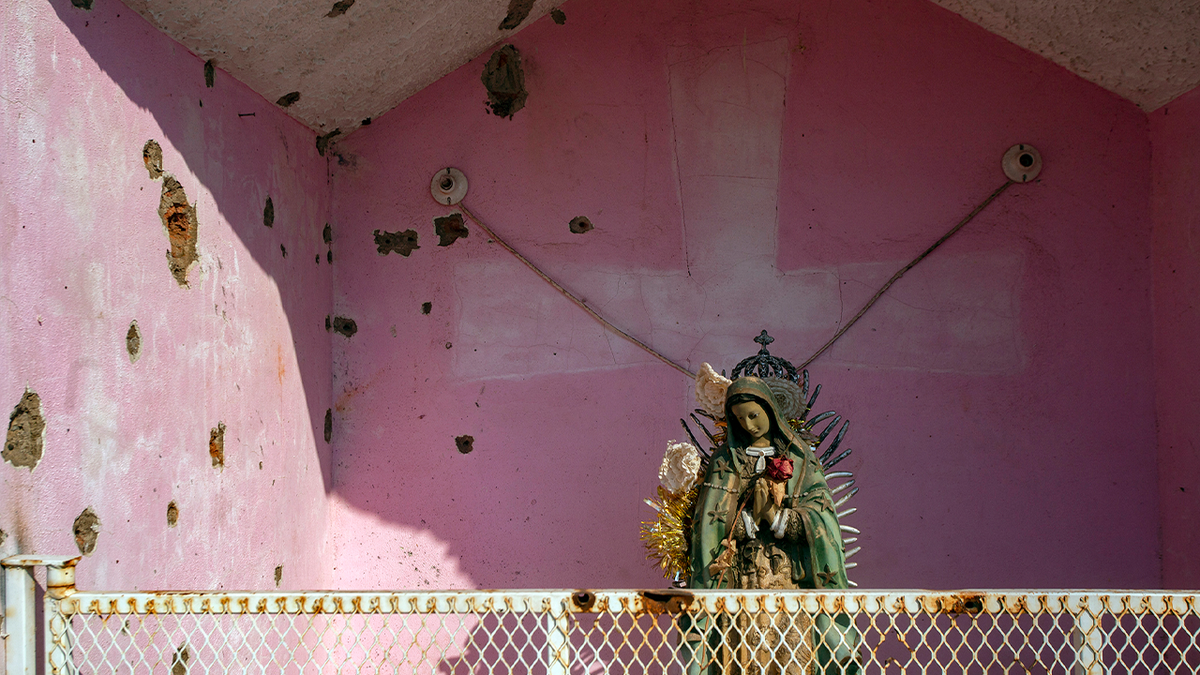
Bullet holes from cartel violence are seen in a sanctuary at El Aguaje community in Aguililla, state of Michoacan, Mexico. (Getty Images)
California is the top U.S. producer of avocados, with roughly 3,000 growers statewide that generate $1.5 billion annually, Melban said. The industry, however, could be rocked if weevils or other pests are brought into the U.S. due to lack of inspection or corrupt inspections of the fruit.
“We farm on about 50,000 acres, representing about 3,000 farmers,” Melban said. “That’s just an average of 17 acres per farmer. So we are a small-scale industry by and large. And, I think that’s important because you’re looking at family farms that have been in business, this is the second, third, fourth generation for many of them. I’ve heard from them. I’ve been with the industry for 15 years and I heard all about the fight 30 years to go to keep Mexico out. And it was strictly from a phytosanitary risk perspective, which is we don’t want to see pests introduced into our growing production areas that would decimate our industry.”
In addition, avocado trees take years to mature, meaning a potential pest infestation could result in a three-to-four-year waiting period as the plants prepare to actually produce fruit. While the cost for recovery would fall on the roughly 3,000 farmers, who would also have to wade through state law on whether they could even use pesticides to kill the insects.
“We’re basically pesticide-free,” Melban said. “But if you bring a pest in that we have no other means to control, that’s what’s going have to happen, just so these growers can fight to save their businesses. And now you get into the domino effect and the collateral damage of using additional pesticides in an industry that we don’t wanna use them in. And I think the environmentalists should be very concerned. There are collateral costs to this, to our government in the past administration retreating in the face of threats from cartels.”
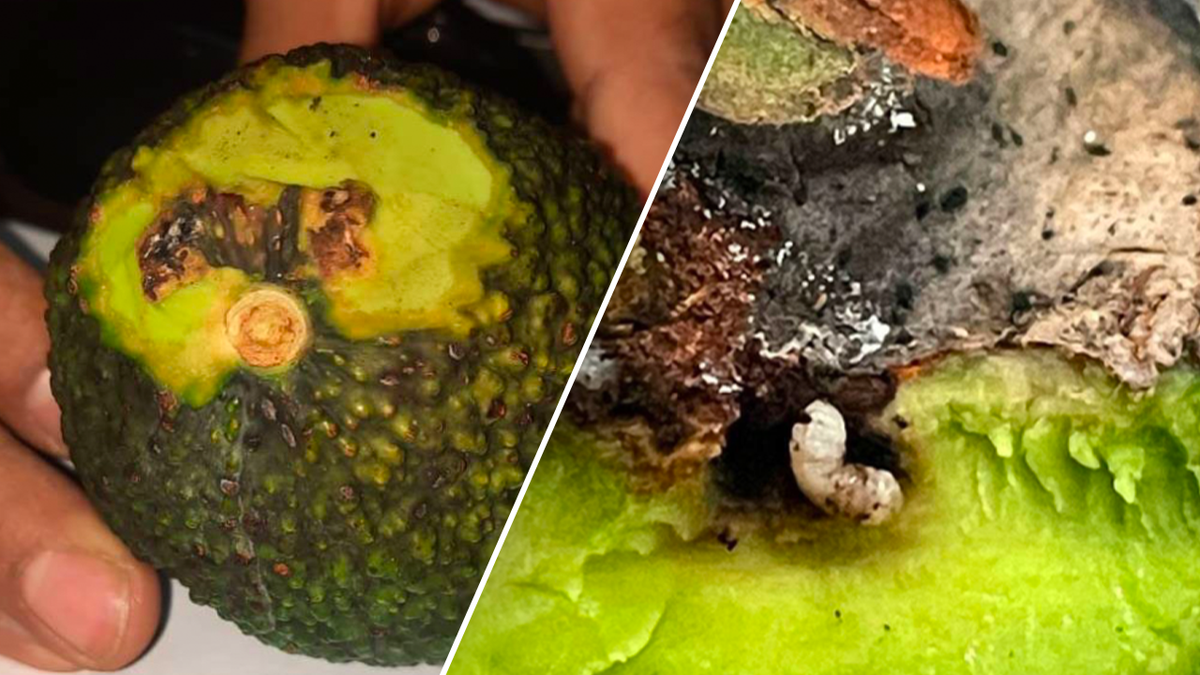
Weevils seen in avocados. (California Avocado Commission)
Five Republican California lawmakers wrote a letter to Trump administration Agriculture Secretary Booke Rollins in March sounding the alarm on how the Biden administration ended the program due to the ongoing threats from cartels.
“In late 2024, APHIS, without advance notice, unilaterally removed all USDA inspectors from Mexican avocado orchards because of ongoing physical threats to their safety by Mexican cartels. As a direct result of threats, USDA-inspections were canceled and replaced by Mexican independent review,” the letter, spearheaded by Republican California Rep. Darrell Issa, stated.
BIDEN ADMINISTRATION HAS ‘ENRICHED’ AND ‘EMBOLDENED’ THE MEXICAN CARTELS: TOM HOMAN
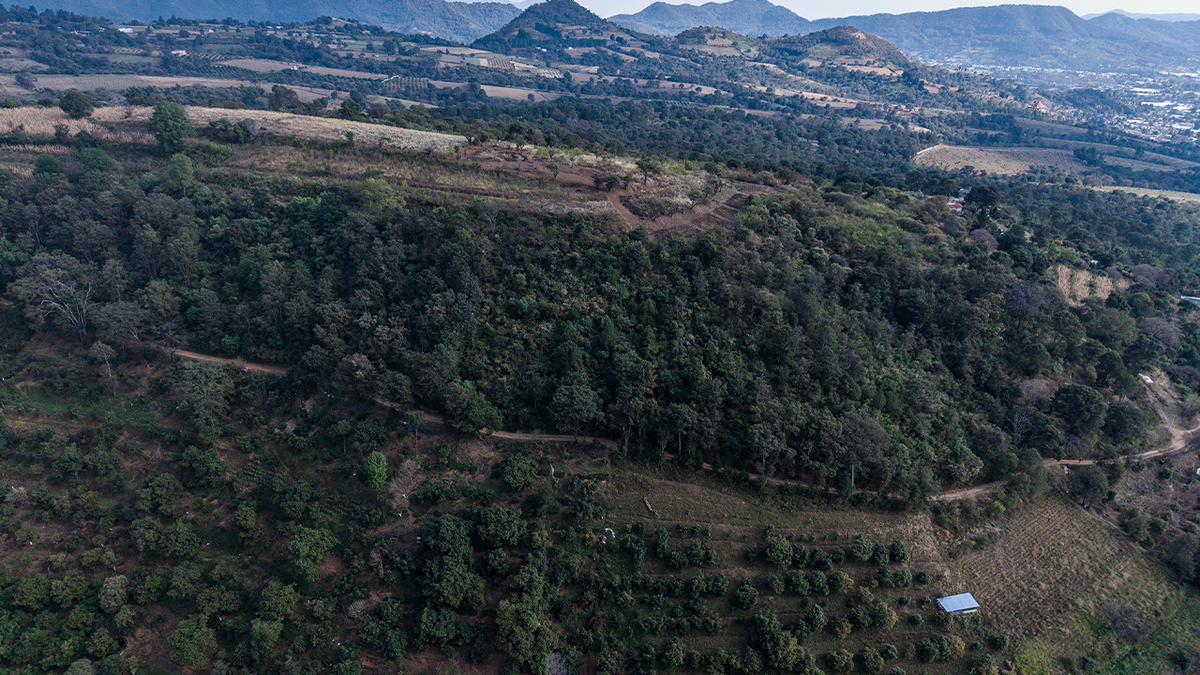
Aerial view of avocado orchards in Mexico. (Getty Images)
“America retreated in the face of cartel threats, and as a result, almost immediately following this change, greater numbers of destructive weevils were detected at packing facilities which evidenced a breakdown in the inspection process and an increase in the likelihood of pest infested avocados slipping through the system and cross into the United States,” the letter continued.
BIDEN IS USING HIS POWER TO AID AND ABET THE MEXICAN CARTELS: KEN PAXTON
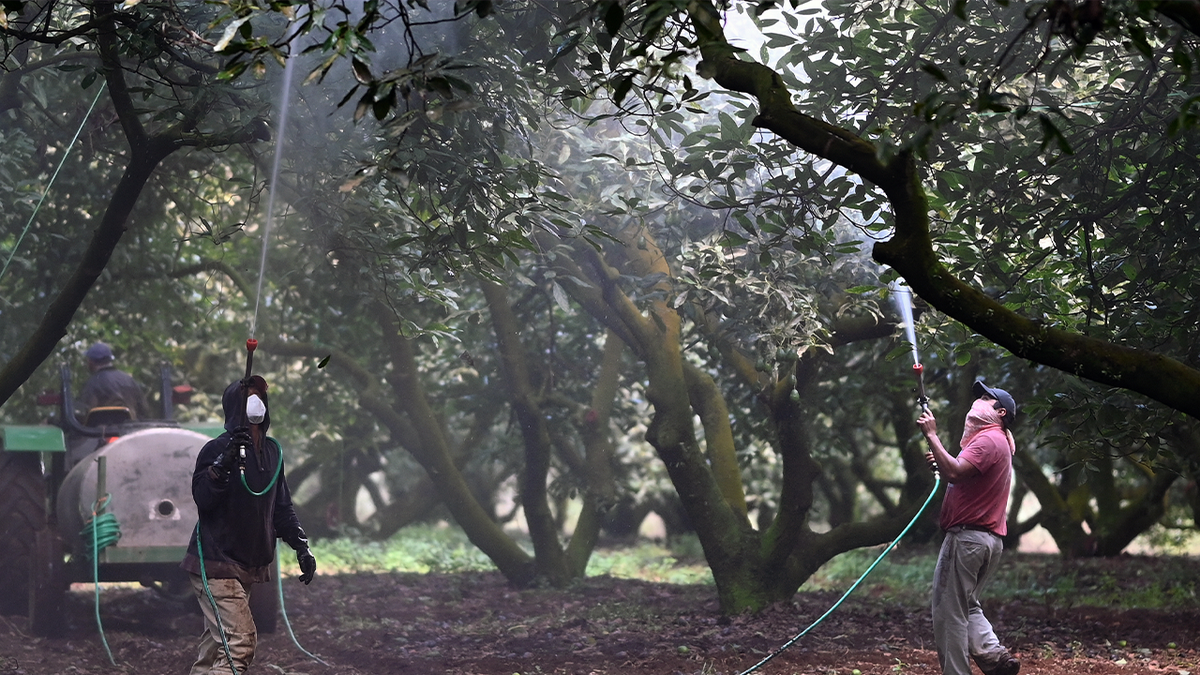
Workers fumigate avocado trees in an orchard in the municipality of Ario de Rosales, Michoacan State, Mexico. (Getty Images)
CLICK HERE TO GET THE FOX NEWS APP
“Congressman Issa has been a real champion for us on this,” Melban told Fox Digital of Issa’s leadership since the Biden decision in September. “About 30-35% of our total production falls within his district and his district borders Mexico. He understands the threat that’s posed here to his constituents and he’s working very hard to get this decision overturned.”
Original News Source Link – Fox News
Running For Office? Conservative Campaign Consulting – Monthly Rates!
